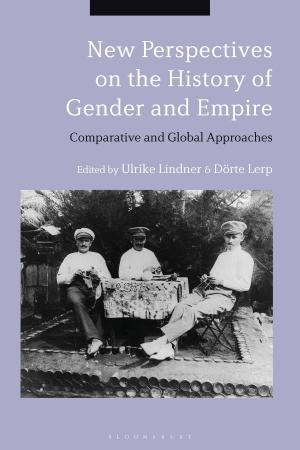The Literature of the Lebanese Diaspora
Representations of Place and Transnational Identity
Nonfiction, History, Middle East, Modern, 20th Century, Social & Cultural Studies, Political Science| Author: | Jumana Bayeh | ISBN: | 9780857736178 |
| Publisher: | Bloomsbury Publishing | Publication: | October 23, 2014 |
| Imprint: | I.B. Tauris | Language: | English |
| Author: | Jumana Bayeh |
| ISBN: | 9780857736178 |
| Publisher: | Bloomsbury Publishing |
| Publication: | October 23, 2014 |
| Imprint: | I.B. Tauris |
| Language: | English |
The Lebanese civil war, which spanned the years of 1975 to 1990,caused the migration of hundreds of thousands of Lebanese citizens, many of whom are still writing of their experiences. Jumana Bayeh presents an important and major study of the literature of the Lebanese diaspora. Focusing on novels and writings produced in the aftermath of Lebanon's protracted civil war, Bayeh explores the complex relationships between place, displacement and belonging, and illuminates the ways in which these writings have shaped a global Lebanese identity. Combining history with sociology, Bayeh examines how the literature borne out of this expatriate community reflects a Lebanese diasporic imaginary that is sensitive to the entangled associations of place and identity. Paving the way for new approaches to understanding diasporic literature and identity, this book will be vital for researchers of migration studies and Middle Eastern literature, as well as those interested in the cultures, history and politics of the Middle East.
The Lebanese civil war, which spanned the years of 1975 to 1990,caused the migration of hundreds of thousands of Lebanese citizens, many of whom are still writing of their experiences. Jumana Bayeh presents an important and major study of the literature of the Lebanese diaspora. Focusing on novels and writings produced in the aftermath of Lebanon's protracted civil war, Bayeh explores the complex relationships between place, displacement and belonging, and illuminates the ways in which these writings have shaped a global Lebanese identity. Combining history with sociology, Bayeh examines how the literature borne out of this expatriate community reflects a Lebanese diasporic imaginary that is sensitive to the entangled associations of place and identity. Paving the way for new approaches to understanding diasporic literature and identity, this book will be vital for researchers of migration studies and Middle Eastern literature, as well as those interested in the cultures, history and politics of the Middle East.















